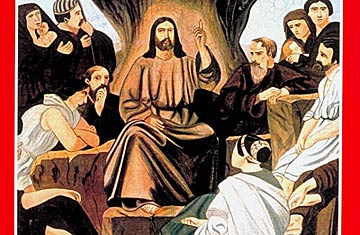
(5 of 11)
Many mainstream Christians—particularly those most critical of the values of commercial American society and suspicious about serving God and Mammon together—are troubled by the way in which celebrated Evangelicals blend show biz and salvation. They deplore the star system they tend to foster and the amounts of cash required to maintain what has been referred to as the "country-and-westernization of religion."
Evangelicalism's practitioners are quick to defend themselves. Says Jim Bakker, high-pressure preacher of TV's P.T.L. (for People That Love) Club: "If Johnson Wax didn't have an identifiable name, how would one know to buy it?" An even bigger star, Billy Graham, mildly invokes the great Evangelicals of the past to defend the jet-setting and electronic gimmickry that have become a part of his calling. "John Wesley had to go on horseback. George Whitefield had to spend all that time crossing the Atlantic 13 times. They used to have to shout at the top of their lungs. I can use a microphone."
There is a graver criticism of Evangelicals: in concentrating on personal salvation, the convert tends to grow safe in his inner consolation, lapsing into passive acceptance of the evils of the outside world. Critics like Coffin tend to see the resurgence of Evangelicalism as one more sign of a self-preoccupied and self-serving national swing toward conservatism in general. The argument is that the outward-looking reformist '60s have regressed into the selfish '70s. The charge has some merit. But there is also much to the Evangelical theory that a man must dramatically change his life and values before he can begin to affect things around him. "We want to change the world," says Manhattan Evangelist Bill Bray, "but we want to change ourselves first."
Pursuing that goal. Evangelicals have thriving student groups on many college campuses. Former Democratic Senator Harold Hughes is quietly working with prominent men in Washington, D.C.. while other specialists are spreading the Gospel among scantily clad chorines, prep school students and young intellectuals. During the past decade, while the four mainline Protestant denominations were cutting their foreign missionary staffs by more than half, many Evangelical agencies were expanding. This year 2,200 college students sent cards to Inter-Varsity Christian Fellowship pledging their lives to overseas work.
Even while they avoided complex social problems. Evangelical missionaries have always cured bodies as well as saved souls. There is a new emphasis, however, on help as a good thing in itself—rather than just as bait to attract converts. The number and variety of Evangelical projects at home are broadening dramatically as ministries bring care as well as conversion to the despairing and needy of America.
"I crawl over broken lives," says Michael Haynes. describing the walk from his small apartment in the black ghetto of Roxbury. Mass., to the Twelfth Baptist Church, where he has been pastor for 13 years. Haynes was a broken 15-year-old himself when a Roxbury social worker "lassoed my life." coaxed him back to Christianity and into seminary, and
